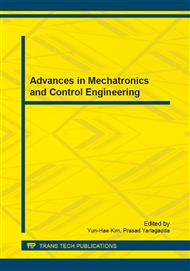p.1687
p.1692
p.1696
p.1700
p.1704
p.1708
p.1713
p.1719
p.1723
D2P Real-Time Simulation of Energy Management Strategy for Parallel Hybrid Electric Vehicle
Abstract:
For investigating the feasibility of control strategy used in parallel hybrid electric vehicle, a D2P real-time simulation is introduced. A new multi-mode rule-based control strategy is proposed. The strategy is based on splitting the torque from the motor and engine so that these power sources can be operated at high efficiency. A real-time simulation platform is built based on D2P system. Real driver inputs and controller are applied while controlled objects are simulated using the model of parallel hybrid electric system computed in D2P module. Strategy is validated by D2P real-time simulation, which results show that the presented strategy is feasible and effective.
Info:
Periodical:
Pages:
1704-1707
Citation:
Online since:
January 2013
Authors:
Price:
Сopyright:
© 2013 Trans Tech Publications Ltd. All Rights Reserved
Share:
Citation:


